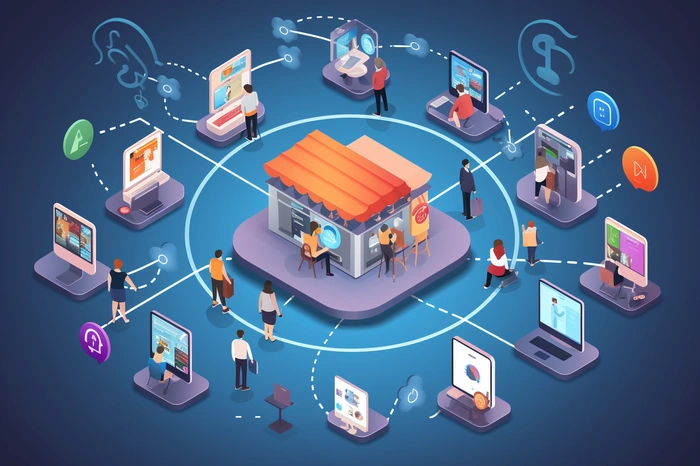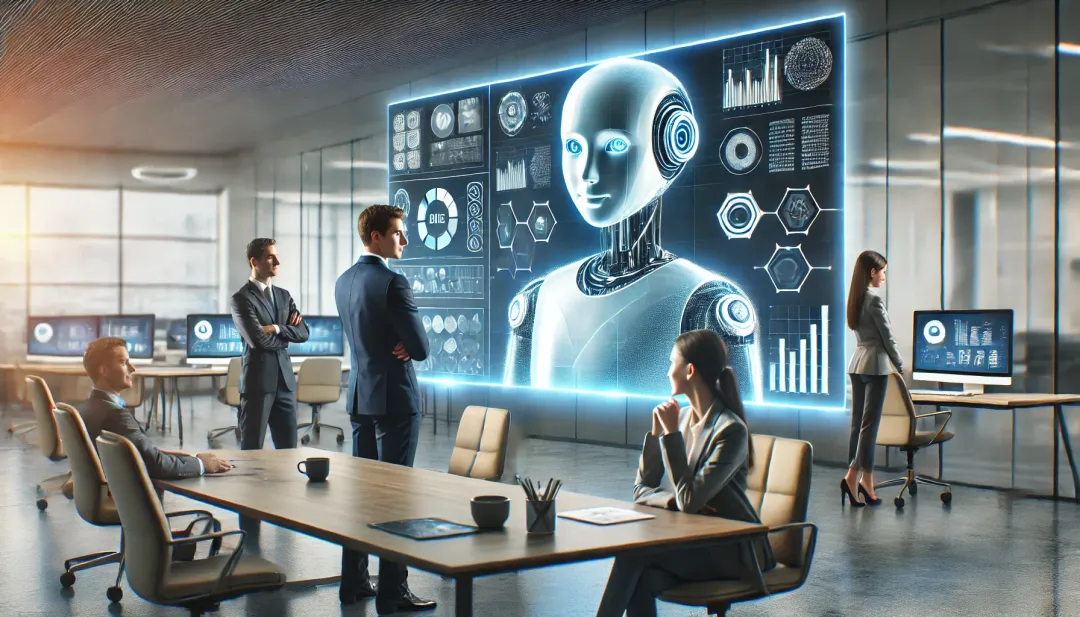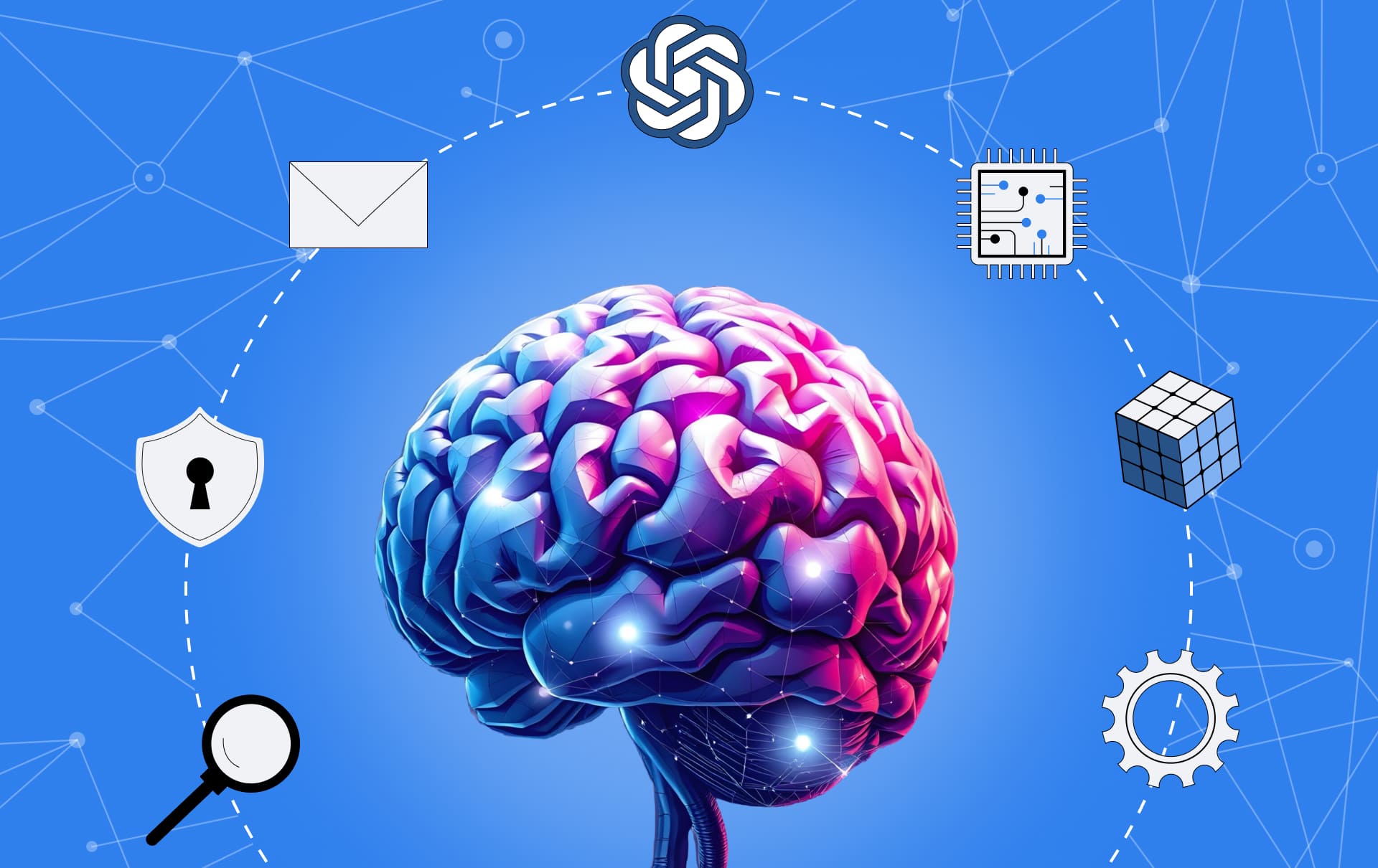The Rise of AI Agents: Redefining Productivity and Innovation for Tomorrow’s Businesses
Businesses are now able to redefine their operations through AI agents, which foster innovation and help them grow at scale. An artificial teammate has limitless capacities for continuous learning, along with the ability to adapt to changing requirements and execute tasks without requiring directions. AI agents deliver this promise to businesses.
What are AI Agents?
AI agents represent autonomous intelligent software programs that execute plans of action based on decided objectives or instant learning procedures. These systems analyze huge data volumes while conducting decision-making and performing tasks at low operational levels with minimal supervisor input. AI agents mark a substantial development in business automation because they assist organizations with general operations solutions, data analytics, and customer experience improvements.
 Types of AI Agents:
Types of AI Agents:
1. Receive Agents
The system responds to direct inquiries through specific operations similar to a customer service chatbot handling basic questions.
2. Proactive Agents
The system uses user behavior data and historical records to generate suggestions similar to recommendation engines on the online streaming platform Netflix.
3. Collaborative Agents
The robot system operates with human employees to achieve higher productivity levels by delivering real-time assistance.
4. Autonomous Agents
Independent thoughts allow individuals to complete tasks without needing constant supervision from others
How Do AI Agents Work?
The operation of AI agents happens in a straightforward yet strong sequence that starts with: Observe → Plan → Act.
1. Observe
Organizations collect and break down environmental information that includes data about how users interact with systems and how the systems perform together with external influences.
2. Plan
Through machine learning models they establish optimal decisions by considering both present conditions and future objectives together with former occurrences
3. Act
AI agents use connected system interfaces to execute tasks while performing real-time decisions and delegating tasks to other agents.
AI agents enhance their abilities throughout time by using this cycle to learn from each interaction resulting in better efficiency. Through continuous data-based refinements, their processes improve as they stay operational in a system.
Core Components of AI Agents
AI agents rely on several interconnected components:
1. Data Collection Interfaces
The observation function of agents receives data from various sources including sensors and databases as well as APIs or user interactions.
2. Memory Modules
Short-term memory functions as the processing center for present data while long-term memory keeps track of prior decisions together with user preferences for future application
3. Decision Engines
These are powered by advanced algorithms and machine learning models that process data and recommend actions
4. Action Interfaces
The AI agent requires a connection to external systems that incorporate CRM software and automation tools for task execution purposes.
5. Feedback loops
Essential for continuous learning, allowing agents to refine their decisions based on the success or failure of past actions.
How Businesses Are Using Agents
AI agents are driving transformation across industries, unlocking new levels of efficiency and innovation. Here’s how companies are putting them to work;

1. Customer Service Supercharged
Conversational AI revolutionizes customer support procedures through virtual assistants who deliver constant service along with quick resolutions of standard issues yet automatically transmit complex problems to human staff members for further assistance. Conversational AI enables Sephora and H&M to deliver superior customer experiences to their clients.
2. Hyper-Personalized Marketing
AI agents analyze individual consumer behavior to deliver tailored content and recommendations. The engagement value of AI agents allows Amazon and Spotify along with other giants to personalize their offers through tailored recommendations to consumers for boosting sales and user retention.
3. Supply Chain Optimization
In logistics, AI agents predict demand, optimize inventory levels, and streamline delivery routes. The shipping companies DHL and FedEx minimize their expenses and deliver faster deliveries through the implementation of AI applications
4. Financial Intelligence
The financial sector experiences modernization through AI agents that perform automated investment assessments and fraud detection while delivering instant financial data. The automated financial service Betterment assists users by managing their investment portfolios without extensive human interaction.
5. Smarter Hiring and HR Management
AI recruitment tools automate the hiring cycle to review resumes after which they set interviews and analyze candidate outcomes. HireVue platforms employ AI technology for both content-based candidate assessments along evaluation of their speaking delivery methods
6. Healthcare Revolution
The utilization of AI agents results in disease diagnoses together with treatment suggestions and medical record administration. IBM Watson Health joins other companies that use AI to enhance patient success while optimizing medical operational procedures.
Why Businesses Are Embracing AI Agents

1. Boosted Efficiency
Enhanced operational performance through automation provides human operators time to dedicate their efforts toward critical strategic work.
2. Cost Savings
The system creates two major financial benefits which reduce routine operational labor costs while decreasing operational mistakes.
3. Enhanced Customer Experiences
The system delivers improved customer encounters through its exact and customized service together with speed of response delivery.
4. Actionable Insights
Enables smarter decision-making through continuous data analysis
5. Scalability
Scalability enables businesses to expand their operation capacity without requiring personnel growth on the same scale.
Challenges and Ethical Considerations
AI agents bring numerous benefits but also come with challenges:
1. Data Privacy
Protecting sensitive information stands as the most important priority
2. Bias and Fairness
AI systems detect and perpetuate previously existing biases that appear in their training datasets.
3. Workforce Displacement
The adoption of automation leads to displacing current workers which demands businesses concentrate on educating their team members about new skills.
4. Transparency
Businesses must provide visibility to human stakeholders about how decisions made by AI systems function.
What’s Next for AI Agents?
The future of AI agents is poised to bring:
1. Hyper-Personalization
The system adjusts user experiences immediately according to what users do and their interests
2. Autonomous Decision-Making
The system makes complex choices by itself after minimizing human involvement in these decisions.
3. AI-Driven Innovation
The use of artificial intelligence for innovation consists of generating new products and services alongside business models that depend on automated intelligent systems.
4. Human-AI Collaboration
AI agents will team up with human operators for multidimensional decision support because they combine human strategic insights with the precision from processed data
Conclusion: A New Era of Business Transformation
AI agents have moved beyond future talk because they currently drive strategic business approaches in today’s world. The companies that integrate AI into their operations now will get ahead while discovering fresh operational enhancements. Time has become the only variable regarding whether AI agents will join your business operations. AI agents help your business achieve operational speedup alongside productivity gains and discover fresh opportunities for business expansion.
If you are looking for high-quality web or app development services feel free to drop us a message. We’re always happy to help you bring your digital projects to life!

